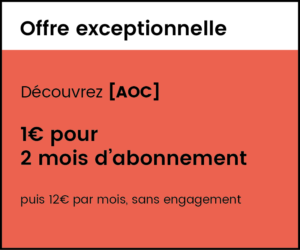It seems that the higher one ascends in the layers of society, the more socio-economic diversity wavers and becomes scarce. This is what the study by Progress Together reveals, shedding light on a troubling preference for privilege. Focused on analyzing school and professional environments, this research shows how inequalities are perpetuated and even worsened over time. Students from less advantaged backgrounds see their chances diminish, while those from affluent families continue to capitalize on their advantages. A true social glass ceiling seems to be erected, hindering the flow of talent and the valorization of diversity.
According to the Progress Together study, socio-economic diversity decreases as one moves towards the upper echelons of society. The preference for privileges tends to favor already established elites, thus reinforcing social segregation. This dynamic means that opportunities for access to high-responsibility positions remain unevenly distributed, largely depending on initial socio-economic status. In other words, the higher one ascends in decision-making spheres, the narrower the diversity becomes, illustrating a clear preference for individuals from privileged backgrounds.

Socieconomic diversity is reduced as one ascends the social hierarchy, as revealed by the Progress Together study. Indeed, the data shows that students from advantaged backgrounds have easier access to prestigious educational institutions, thus reinforcing educational inequalities. School inequalities are exacerbated by orientation choices determined not only by academic abilities but also by socio-economic factors. This results in segregation where institutions group students from similar social backgrounds.
Table of Contents
ToggleCombating school segregation and valuing diversity in education
To reduce this school segregation, various initiatives advocate for an inclusive education. These actions aim to mix students from different socio-economic backgrounds to ensure equal opportunities. Innovative programs and enlightened policies are essential to break this vicious cycle and allow every child to realize their full potential, regardless of their social background.
Researchers, including those from the Women and Science Chair at the University of Paris Dauphine, advocate for a better analysis of school trajectories based on diversity. According to them, understanding socio-economic inequalities in learning would allow for the adaptation of pedagogical practices and provide better support for students from disadvantaged backgrounds.
The long-term impacts on academic and professional success
It is crucial to note that these disparities are not limited to the school period. They have long-term repercussions on employment opportunities and the professional advancement of individuals. Young graduates from modest backgrounds encounter more difficulties in accessing managerial positions, thus fueling socio-spatial segregation. This dynamic is particularly visible among foreign-born graduates, who often face additional obstacles in their professional integration.
🔎 Seule une #diversité de #talents permet de répondre à l’environnement complexe des entreprises. La Journée internationale des droits des femmes est l’occasion de mettre en avant l’apport d’une main-d’œuvre représentative de la diversité socio-économique et culturelle. #IWD2020 pic.twitter.com/8Rl8IUd8UL
— Union des Entreprises Luxembourgeoises (@uel_lu) March 9, 2020





